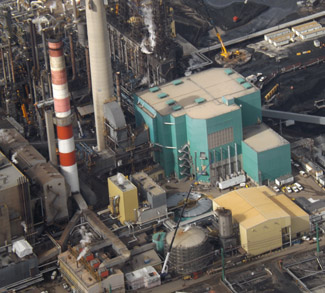First came the spectacular failure of the Unocal takeover, then the long and agonizing death of the Rio Tinto bid, but you just can’t keep a good Chinese SOE down. Next up is Canada’s Nexen Inc, and the China National Offshore Oil Corporation (CNOOC) seems to have learned a good deal from its past failures, so much so that this deal will likely go through.
Large foreign takeovers involving strategic sectors will always evoke a heated response from democratic populations, particularly when the acquiring entity is owned by a foreign government. Thus, the debate that has already broken out in the Canadian media, the ‘is Canada really open for business?’ versus ‘we can’t just sell our birthright to a foreign government!’ should come as a surprise to no one. This is the language that various actors will adopt in order to push their own political and economic goals, goals that are often completely unrelated to the matter at hand: whether or not the CNOOC is good for Canada.
In the case of the CNOOC-Nexen deal, there are several factors that point to the deal’s ultimate approval. First of all, there’s the structure and complexion of the deal itself. Unlike the failed hostile takeover of Potash Corp. by BHP Billiton in 2010, the CNOOC has laid the groundwork for a success bid by securing prior approval from the government of Alberta and the Nexen board.
This deal also fits in with Canada’s push to diversify its trade away from its conventional overreliance on the United States. As a result of the ongoing Keystone XL debacle, Ottawa has increasingly looked to Asian markets as a destination for Canadian energy supplies. In this light, the CNOOC-Nexen deal, like Petronas’ $5.5 billion takeover bid of British Columbia’s Progress Energy, fits into Ottawa’s plan perfectly. After all, there are only a handful of energy companies worldwide with the requisite capital and know-how to develop large scale reserves, and none of them are based in Canada.
But there will still be fierce opposition to this deal in Canada. Foreign ownership of Canadian resources is a political flashpoint, and the deal has already suffered a PR defeat from ongoing investigations in both the US and Canada that point to large-scale insider trading leading up to the announcement of the deal.
There’s also the question of reciprocity in the Chinese market. Canadians, much like their neighbour to the south, bristle at the fact that Chinese companies receive better treatment in Canada than Canadians do in China. The market access equation remains clearly weighted in favor of China, and early blowback in the Canadian media has tended to focus on this lack of reciprocity for Canadian companies. It is, after all, hard for even the most devoted FDI zealots to argue their way around the fact that if the positions were reversed, a Canadian SOE would have to content itself with a maximum ownership stake of 10 percent being that energy has been classified as a ‘key sector’ by the Chinese government (along with agriculture, chemicals, insurance, securities, telecommunications, and believe it or not, express delivery as well).
Rational arguments and nationalist angst won’t be enough to scuttle the deal however because it fits in too perfectly with the Harper government’s macroeconomic strategy. And with three years to go until the next federal election, the government doesn’t need to go conflating its own survival with a transitory swelling of Canadian nationalist sentiment. That is, unless the sentiment were to build into a rage.


